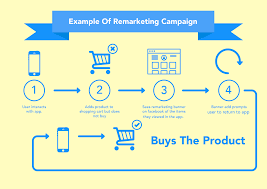Customer reviews have become the backbone of the modern consumer’s decision-making process. In a world inundated with choices, the opinions and experiences shared by fellow customers hold unparalleled significance. This article delves into the intricate psychology behind customer reviews, exploring the emotional connections, social proof dynamics, and the impact on brand reputation.
Introduction
In the vast landscape of online shopping and service consumption, customer reviews act as beacons guiding potential buyers. The significance of these reviews goes beyond mere testimonials; they play a pivotal role in shaping the decisions of consumers. From the choice of a restaurant for dinner to the selection of a new smartphone, the impact of customer reviews is omnipresent.
The Emotional Connection
Customer reviews are not just about facts and figures; they evoke emotions. When a customer shares a heartfelt experience, it resonates with others who might be facing similar dilemmas. The emotional connection established through these narratives builds trust, a cornerstone of successful customer-business relationships.
The Power of Social Proof
Humans are social beings, and the influence of peer opinions is deeply ingrained. The phenomenon of social proof is a powerful psychological trigger that affects our decision-making process. Positive reviews act as endorsements, nudging potential customers towards a product or service.
Negative Reviews: Turning Challenges into Opportunities
Negative reviews, though seemingly detrimental, present businesses with invaluable opportunities for improvement. Addressing these reviews transparently not only resolves issues for the affected customer but also showcases a commitment to excellence, turning negatives into positives.
The Authenticity Factor
Recognizing genuine reviews from fabricated ones is crucial. Customers can often distinguish between authentic experiences and promotional content. Strategies to encourage honest feedback include creating user-friendly review platforms and offering incentives for sincere reviews.
The Role of Visuals in Reviews
The saying, “a picture is worth a thousand words,” holds true in the realm of customer reviews. Visual content accompanying reviews adds depth and authenticity. Encouraging customers to share photos or videos of their experiences enhances the overall impact of their feedback.
The Science Behind 5-Star Ratings
The psychology behind high ratings is fascinating. Customers perceive a 5-star rating as a symbol of excellence, and businesses must understand and maintain this perception. Strategies to consistently receive high ratings involve delivering exceptional products or services and actively seeking customer feedback.
Engaging with Customers Through Reviews
Responding to reviews, both positive and negative, is an essential aspect of customer engagement. Acknowledging feedback, expressing gratitude for positive reviews, and addressing concerns in a constructive manner humanize the brand and foster a sense of community.
The Impact on Brand Reputation
Customer reviews contribute significantly to a brand’s reputation. Consistent positive feedback builds trust and loyalty, while negative reviews can be opportunities for redemption. Managing and leveraging customer feedback is an ongoing process that directly influences how a brand is perceived in the market.
The Rise of Review Platforms
Review platforms have emerged as central hubs for customer opinions. Understanding the significance of popular platforms such as Yelp, TripAdvisor, or Google Reviews is essential for businesses seeking to harness the power of customer feedback. Navigating these platforms strategically can amplify a brand’s visibility.
Cognitive Bias in Reviews
Customers’ reviews are not always purely objective; cognitive biases can influence perceptions. Recognizing and minimizing biases in both the creation and consumption of reviews is vital for maintaining a fair and accurate representation of a business’s offerings.
Review Marketing Strategies
Integrating customer reviews into marketing strategies amplifies their impact. Showcasing positive reviews in promotional materials, websites, and social media builds credibility and attracts potential customers. Businesses can also incorporate customer testimonials into advertising campaigns to reinforce brand trust.
The Psychological Journey of Leaving a Review
Understanding the motivations behind customers leaving reviews is crucial. Some share their experiences to help others, while others seek validation. Simplifying the review process and actively encouraging customers to share their thoughts can increase overall engagement.
The Future of Customer Reviews
As consumer behavior evolves, so does the landscape of customer reviews. Businesses need to stay attuned to emerging trends, such as the rise of video reviews and the integration of artificial intelligence in review analysis. Embracing these changes ensures a brand remains relevant in the ever-shifting digital marketplace.
Conclusion
In conclusion, the psychology of customer reviews is a multifaceted aspect of modern commerce. It goes beyond a simple rating or comment; it embodies the collective experiences and emotions of customers. Understanding this psychology enables businesses to not only manage their online reputation but also actively engage with their customer base, fostering a relationship built on trust and authenticity.
FAQs
How do I encourage customers to leave authentic reviews?
Encourage customers to share their honest experiences, and consider offering incentives for genuine feedback.
What should I do if I receive a negative review?
Address the concerns raised in the review transparently, showcase a commitment to improvement, and seek to resolve the issue directly with the customer.
Can businesses remove negative reviews?
While businesses cannot directly remove reviews, addressing concerns and showcasing improvements can mitigate the impact of negative feedback.

